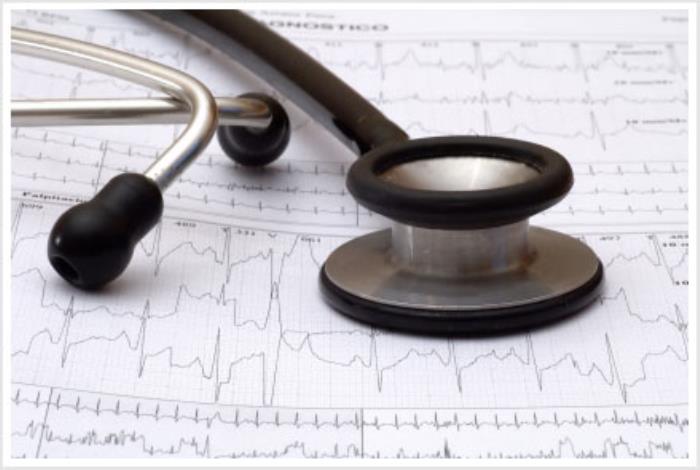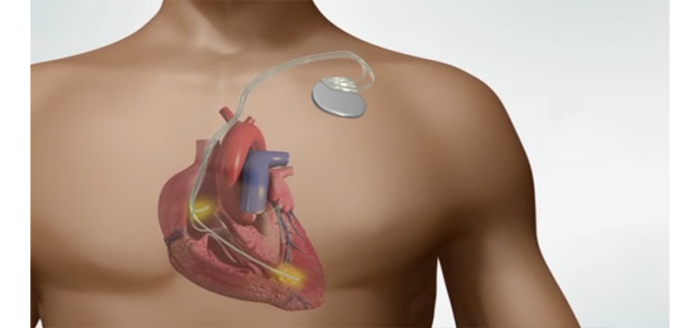Sudden Cardiac Arrest (SCA) is a critical medical emergency characterized by the abrupt cessation of heart function, leading to loss of consciousness and, if untreated, death within minutes. It is often caused by lethal arrhythmias, particularly ventricular fibrillation or pulseless ventricular tachycardia. Understanding the underlying mechanisms and risk factors associated with SCA is essential for effective prevention and intervention strategies. One of the key technologies in preventing the fatal consequences of SCA is the Automated Implantable Cardioverter Defibrillator (AICD), a device designed to monitor and regulate heart rhythms in at-risk patients.
What is an Automated Implantable Cardioverter Defibrillator (AICD)?
An Automated Implantable Cardioverter Defibrillator (AICD) is a medical device implanted in patients at risk for sudden cardiac arrest due to serious arrhythmias. It continuously monitors the heart's rhythm and can deliver electrical shocks, known as defibrillation, to restore normal rhythm when dangerous heartbeats are detected. The AICD not only serves as a lifesaving intervention during episodes of SCA but also provides data that can inform ongoing treatment and management of underlying heart conditions.
How AICD Works to Detect Abnormal Heart Rhythms
The AICD is equipped with sophisticated sensors that constantly track the heart's electrical activity. When it detects abnormal rhythms, such as ventricular tachycardia or ventricular fibrillation, it automatically evaluates the situation and, if necessary, administers a shock to the heart. This shock disrupts the chaotic electrical activity, allowing the heart to reset and resume its normal rhythm. The rapid response of the AICD is critical, as timely intervention can mean the difference between life and death in the event of SCA.

Risk Factors for Sudden Cardiac Arrest
Certain individuals are at a higher risk for SCA due to a variety of factors. These include pre-existing heart conditions such as coronary artery disease, cardiomyopathy, or previous heart attacks. Additional risk factors include age, family history of heart disease, and lifestyle factors such as smoking, obesity, and sedentary behavior. Identifying and understanding these risk factors can help healthcare providers target high-risk patients for preventive measures, including the potential need for AICD implantation.
The Importance of Early Detection in SCA Prevention
Early detection of heart rhythm abnormalities is crucial in preventing SCA. Regular cardiac evaluations, especially for individuals with known risk factors, can lead to timely diagnosis and intervention. Patients experiencing symptoms such as palpitations, dizziness, or fainting should seek medical attention promptly. By addressing these symptoms and monitoring heart health closely, healthcare providers can implement preventive strategies, including the consideration of AICD implantation for high-risk individuals.
Mechanism of Action: How AICD Restores Normal Heart Rhythm
The primary mechanism of action of the AICD involves its ability to deliver electrical shocks to the heart to terminate abnormal rhythms. Upon detecting a life-threatening arrhythmia, the device rapidly charges and discharges electricity through electrodes attached to the heart. This shock interrupts the abnormal electrical activity, allowing the heart’s natural pacemaker to regain control and restore a normal rhythm. The device's ability to respond instantaneously is vital in the critical moments following an SCA event.
AICD Implantation: Who Needs It and Why
AICD implantation is recommended for patients at high risk for life-threatening arrhythmias and sudden cardiac arrest. This includes individuals with a history of previous cardiac arrest, those with significant heart disease, and patients who have experienced severe arrhythmias that cannot be adequately managed through medication or lifestyle changes. The decision to implant an AICD involves careful consideration of the patient’s overall health, risk factors, and potential benefits of the device. This proactive approach aims to significantly reduce the risk of SCA and improve long-term outcomes for at-risk patients.
Evidence Supporting AICD Use in High-Risk Patients
Numerous studies have demonstrated the effectiveness of Automated Implantable Cardioverter Defibrillators (AICDs) in reducing mortality rates among high-risk patients, particularly those with a history of ventricular fibrillation or tachycardia. Clinical trials such as the SCD-HeFT and MADIT-2 have shown that AICDs significantly improve survival rates when compared to standard medical therapy alone, providing compelling evidence for their use in preventing sudden cardiac arrest (SCA).
Long-Term Outcomes for Patients with AICD Implants
Long-term outcomes for patients with AICD implants are generally positive. Studies indicate that many patients experience improved survival rates, decreased hospitalization for arrhythmias, and enhanced quality of life post-implantation. Regular follow-up and appropriate device management further contribute to positive long-term outcomes, ensuring the device functions correctly and patients receive necessary interventions.
Comparing AICD with Other Cardiac Devices for SCA Prevention
When comparing AICDs to other cardiac devices, such as implantable cardioverter defibrillators (ICDs) and cardiac resynchronization therapy (CRT), AICDs specifically focus on preventing SCA through shock delivery for life-threatening arrhythmias. While other devices may improve heart function or manage heart failure symptoms, AICDs are uniquely positioned to intervene during critical events, making them essential for high-risk patients.
Psychological Impact of Living with an AICD
Living with an AICD can have psychological implications for patients. Many report feelings of anxiety or fear related to the device and its function. Some patients may also experience concerns about lifestyle changes, limitations in physical activities, or the fear of experiencing a shock. Providing psychological support and education about the device's purpose can help mitigate these concerns and improve overall mental well-being.
Managing Lifestyle Changes After AICD Implantation
Post-implantation, patients often need to make lifestyle adjustments. This may include modifications to physical activity, dietary changes, and adherence to medication regimens. Patients are advised to avoid strenuous activities and to consult healthcare providers before engaging in new exercises. Education on recognizing symptoms that warrant medical attention is also essential to ensure patient safety.

Patient Education: Recognizing the Signs of SCA
Patient education plays a crucial role in SCA prevention. It is vital for patients and their families to recognize the signs of potential SCA, including sudden fainting, severe dizziness, chest pain, or palpitations. Understanding these warning signs can facilitate prompt medical intervention and improve outcomes.
The Role of Family Support in SCA Prevention
Family support is instrumental in managing heart health and preventing SCA. Educating family members about the patient’s condition, the function of the AICD, and the importance of monitoring symptoms fosters a supportive environment. Encouragement from loved ones can help patients adhere to treatment plans and lifestyle modifications.
Advances in AICD Technology and Functionality
Advancements in AICD technology have enhanced device functionality, including features such as remote monitoring, advanced algorithms for arrhythmia detection, and improved battery life. These innovations contribute to better patient management and outcomes, making AICDs more effective in preventing SCA.
Post-Implantation Monitoring and Follow-Up Care
Regular monitoring and follow-up care are critical for patients with AICD implants. Healthcare providers conduct routine device checks to ensure proper functioning and to assess any potential complications. Patients are encouraged to report any symptoms or concerns promptly, allowing for timely interventions and adjustments to their treatment plans.
The Cost-Effectiveness of AICD in SCA Prevention
The cost-effectiveness of AICDs in preventing SCA has been supported by various economic studies. While the initial investment in AICD implantation may be significant, the long-term savings associated with reduced hospitalization rates and improved survival outcomes make it a valuable intervention for high-risk patients.
Addressing Common Misconceptions About AICD
There are several misconceptions surrounding AICDs, including beliefs about their risks and limitations. Patients often worry about the potential for shocks or device malfunction. Educating patients and their families about how AICDs work, their safety, and their efficacy in preventing SCA can alleviate fears and misconceptions.
Real-Life Success Stories: AICD and SCA Prevention
Real-life success stories of patients living with AICDs highlight the life-saving potential of these devices. Many individuals share experiences of being saved from life-threatening arrhythmias, which reinforces the importance of AICDs in high-risk populations and emphasizes the need for continued education and awareness.
Life After AICD Implantation: Lifestyle Changes and Adaptations
Understand the lifestyle changes and adaptations required after AICD implantation. This section covers essential adjustments patients may need to make in their daily lives, including activity restrictions, follow-up care, and how to maintain heart health while living with an AICD.
Conclusion: The Critical Role of AICD in Saving Lives
AICDs play a vital role in preventing sudden cardiac arrest, particularly in high-risk patients. With robust evidence supporting their efficacy, ongoing advancements in technology, and the critical need for patient education and support, AICDs continue to be an essential component of cardiac care that can significantly enhance patient survival and quality of life.
Best AICD Implantation in India
The Best AICD Implantation in India involves placing a small device to monitor heart rhythms and deliver lifesaving shocks if dangerous arrhythmias are detected, ensuring enhanced heart safety for high-risk patients.
Best AICD Implantation Hospitals in India
The Best AICD Implantation Hospitals in India are equipped with cutting-edge technology and skilled cardiology teams, providing comprehensive care and expertise in cardiac rhythm management.
AICD Implantation Cost in India
The AICD Implantation Cost in India is competitively priced, making advanced cardiac care accessible with transparent and affordable treatment options.
Best AICD Surgeons in India
The Best AICD Surgeons in India are highly skilled in cardiac device implantation, providing personalized care to help patients manage serious heart conditions effectively.
FAQ
How does an AICD prevent sudden cardiac arrest?
An AICD monitors the heart's rhythm and delivers electrical shocks to restore normal rhythm when it detects life-threatening arrhythmias, preventing SCA.
What are the signs that someone is at risk for sudden cardiac arrest?
Signs include a history of heart disease, previous episodes of arrhythmias, unexplained fainting, chest pain, and family history of sudden cardiac death.
Can an AICD malfunction, and what should I do if it does?
Yes, AICDs can malfunction, though this is rare. If you experience unexpected shocks or symptoms like dizziness or chest pain, contact your healthcare provider immediately.
How effective is an AICD in preventing SCA in high-risk patients?
AICDs have been shown to significantly reduce mortality rates and prevent SCA in high-risk patients, with studies demonstrating improved long-term outcomes.
What lifestyle changes should be considered after getting an AICD?
Patients should consider avoiding strenuous activities, adhering to prescribed medications, and maintaining a heart-healthy diet. Regular follow-up with healthcare providers is also essential.
Explore the Best Cardiologists and Cardiac Hospitals in India
When it comes to heart health, choosing the right specialist and hospital is crucial. We�ve compiled a list of top cardiologists and cardiac hospitals across India to help you find the best care available.
Top Cardiologists and Cardiac Surgeons in Major Cities
Discover the leading heart specialists in India�s major cities:
Conclusion
Your heart deserves the best care. Explore the links above to learn more about the top cardiologists and cardiac hospitals in India.
Related Resources
At ArogyaJivan, we strive to provide you with the most accurate and up-to-date information to help you make informed decisions about your healthcare. Whether you are searching for the Best Doctors in India or the Top 5 Doctors in India, our resources are tailored to guide you through your medical journey. Additionally, our comprehensive guides on the Best Hospitals in India and the Top 5 Hospitals in India will assist you in choosing the right healthcare facility for your needs. Explore these resources to ensure you receive the best possible care.